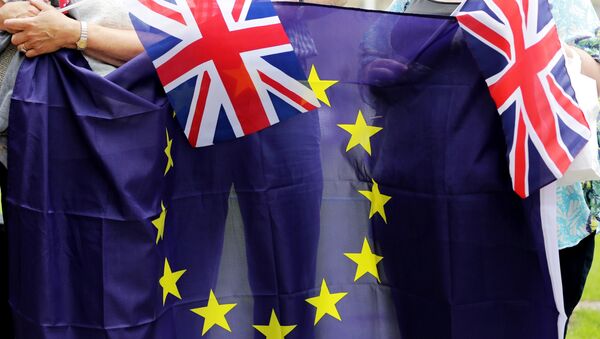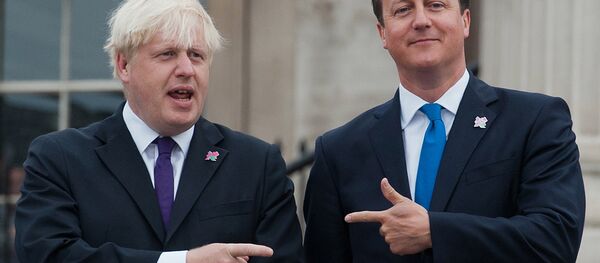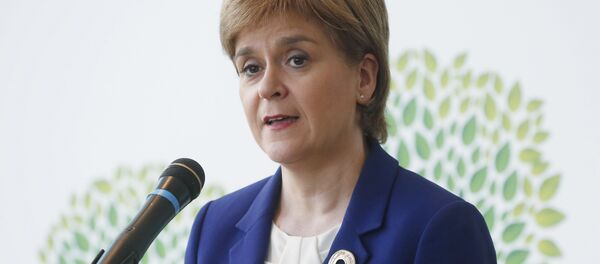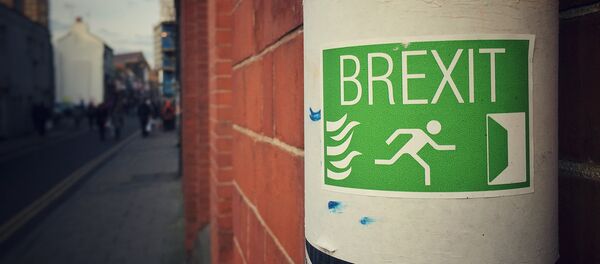MOSCOW (Sputnik) — On Thursday, the United Kingdom held a referendum to determine whether or not the country should leave the European Union. According to the final results of the referendum, 51.9 percent of voters, or some 17.4 million people, decided to support Brexit, while about 16.1 million opposed it.
Conservative Crisis
"The British people have voted to leave the European Union and their will must be respected," Cameron said.
He also stated that the country needed a new prime minister.
"The British people have made a very clear decision to take a different path and as such, I think the country requires fresh leadership to take it in this direction… I will do everything I can as prime minister to steady the ship over the coming weeks and months, but I do not think it would be right for me to try to be the captain that steers our country to its next destination. This is not a decision I've taken lightly, but I do believe it's in the national interest to have a period of stability and then the new leadership required. There is no need to have a precise timetable today but in my view we should aim to have a new prime minister in place by the start of the Conservative Party congress in October," Cameron said.
Political analysts believe former London mayor Boris Johnson, who was one of the key campaigners of the United Kingdom leaving the European Union, could benefit from the results of the referendum and even replace Cameron as the leader of the Conservative Party.
Pound's Sharp Fall
The pound fell to $1.50 for the first time since December 2015, as early polling results released after voting ended suggested that the Remain campaign was likely to win.
However, the announcement of the results saw the pound drop to $1.38, which is the lowest exchange rate since 1985.
Threat of Disintegration
A majority of voters in Wales and England voted in favor of leaving the bloc, while London, Scotland and Northern Ireland voted in favor of remaining part of the 28-nation bloc. The geographical distribution of the votes has already raised certain concerns about the territorial integrity of the United Kingdom.
The Northern Irish political party Sinn Fein considers the results of the referendum as grounds for a vote on the province uniting with Ireland.
"We now have a situation where Brexit has become a further cost of partition [division of Ireland], a further cost of the Union and Sinn Fein will now press our demand, our long standing demand, for a border poll [referendum on Northern Ireland sovereignty]," Sinn Fein's national chairman Declan Kearney said.
Scotland's First Minister Nicola Sturgeon said the final results showed the desire of the Scots to remain part of the European Union.
"The vote here makes clear that the people of Scotland see their future as part of the European Union," Sturgeon noted.
In September 2014, Scotland held a referendum on independence from the United Kingdom, in which over 55 percent of the electorate rejected secession. Sturgeon said after the Brexit vote that a new Scottish referendum was "highly likely."
Legal Consequences
Despite the fact that a majority of British voters supported exiting the 28-nation bloc, London cannot announce its independence from Brussels instantly and will remain a member of the European Union for the next two years.
That is why, any steps made by the United Kingdom that do not comply with EU norms will be considered to be violations of London's international obligations.
Brexit supporters argue that EU membership has eroded the country’s independence to legislate, direct its economy and control its borders. Opponents warn that leaving the European Union will deeply harm UK economy.








